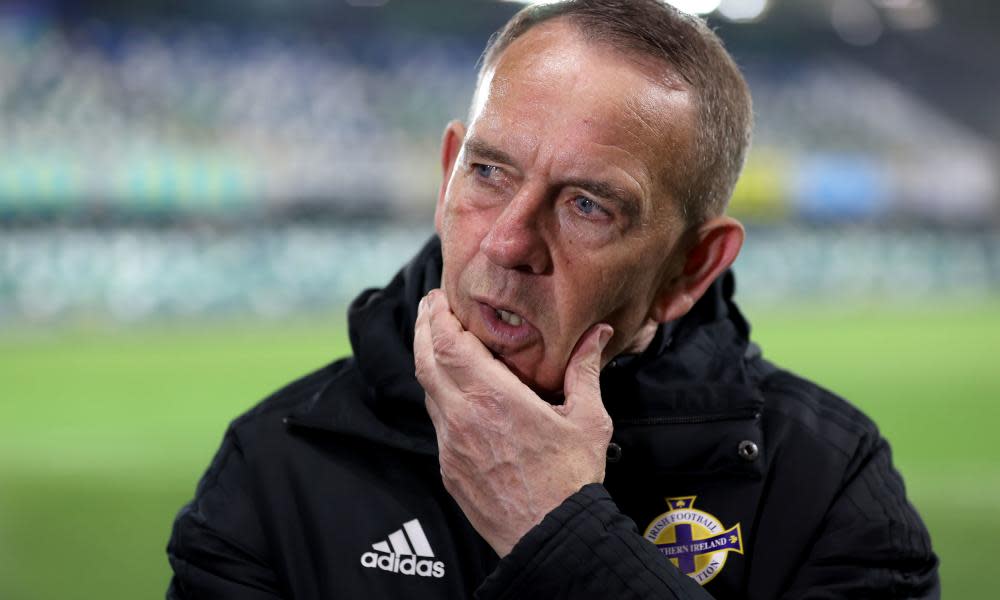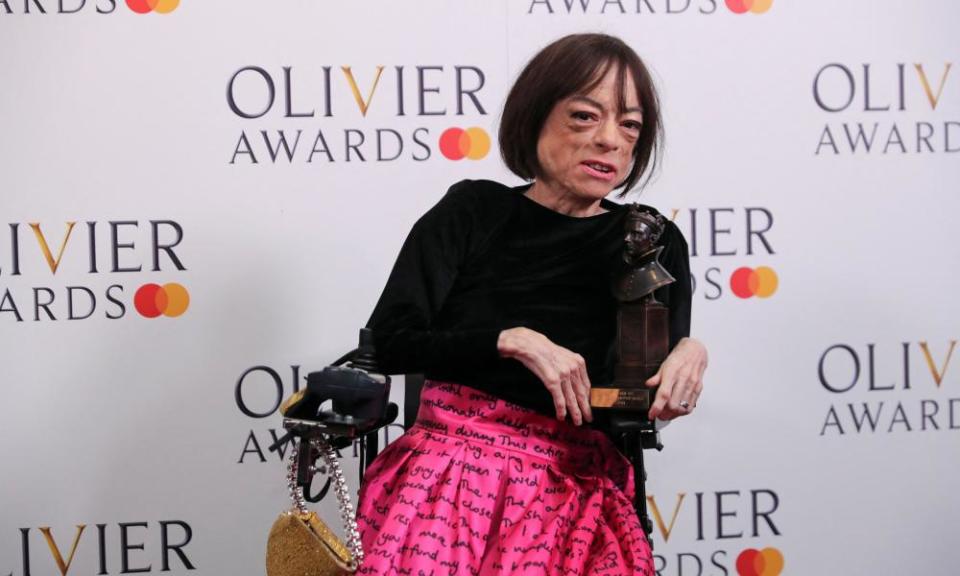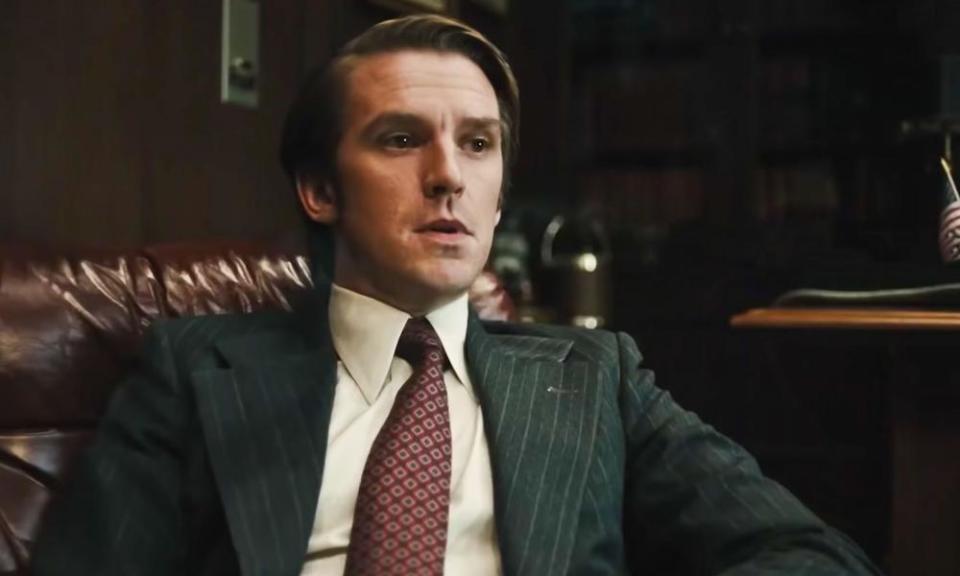I should have a little lady-cry, but the Kenny Shiels furore is oddly cheering

It was a bad day at the office for Northern Ireland manager, Kenny Shiels. Discussing his team’s 5-0 defeat to England on Tuesday, a loss that ended their hopes for the 2023 Women’s World Cup, he explained that “girls and women are more emotional than men, so they take a goal and then they don’t take that very well”. It wasn’t a slip of the tongue.
He went on to explain his theory, using statistics about how often a second goal is conceded quickly after the first. “That’s an emotional goal,” he suggested. After a minute or so of chat about the subject, there was a telltale pause. “I shouldn’t have told you that,” he said.
Perhaps the emotion of the occasion got the better of him. It wouldn’t be the first time Shiels had put his foot in it and he proved to have impeccable analytical skills regarding his own post-match press conference, at least, because he really shouldn’t have told us that. His remarks quickly drew condemnation and it was hard to know which eyeroll should come first. Was it for the casual sexism, the stereotypes, for a man becoming the centre of attention during a big night for women, or for the implication that emotions in sport are inherently negative, a view that damages both men and women?
And you do have to wonder when Shiels last watched men play any sport. There’s more drama in a Sunday league match than in the Christmas episode of EastEnders. “Kenny Shiels talking foolishness,” said Ian Wright, posting pictures of himself in tears on the pitch. This was the same week that the two-part documentary Gazza began on BBC2, a story stuffed with players’ emotions and emotional havoc, in the same week that Ronaldo hit a phone out of a 14-year-old’s hand after Manchester United lost to Everton. Still, women, eh? With their special lady emotions, getting all lady-upset about the goals!
By the end of the week, Shiels emerged from the furore a little bruised, but after a sincere-sounding apology, his job was intact and he had the support of his team. I found the whole fiasco quite heartening in the end, which is weird, because I probably should have had a meltdown and cried about it. What stood out most is that 10 years ago, comments like this probably wouldn’t have caused much of a fuss. Instead, the near-unified reaction to it offered a clear indication of where the women’s game is going and what it is leaving behind.
Liz Carr: maskless crowds add to Covid stage fright

Backstage at the Olivier awards last Sunday, Liz Carr, who had just won best supporting actress for her role in The Normal Heart at the National, told the BBC thatshe had not been to a theatre in over two years. “This is a frightening night for me,” she said, explaining that, while she had appeared on stage in front of an audience during that time, she was surrounded by a cast and crew who were testing for Covid every day.
Now that face covering rules have been lifted, audiences are no longer legally obliged to wear masks and in my experience of live performances recently, it seems that more choose not to than choose to.
That’s the law. But Carr suggested a solution for those who do not feel comfortable, or able, to put their health at the mercy of other people’s choice to wear a mask or not. She suggested special performances, with mandatory mask-wearing and less capacity, so that those with health conditions aren’t excluded from going to the theatre. The Royal Shakespeare Company put on a reduced capacity performance of Much Ado About Nothing last month, asking audience members to wear masks, for this exact reason. It makes absolute sense and should be more widespread.
Dan Stevens: watch your chatshow ratings, Boris

On The One Show last Wednesday, the actor Dan Stevens took a run up to his punchline as if he were doing the long jump. Asked about Gaslit, his new series about Richard Nixon, he talked of “a criminal for a leader who is wrapped in a messy war, embroiled in a stupid scandal and surrounded by ambitious idiots and really should resign”.
You could see what was coming, though the presenters seemed shocked when he stuck the landing and revealed he was talking about Boris Johnson instead. They didn’t know where to look or what to say. Obviously, the clip went viral.
It was a spiky interlude for the BBC show, which is usually so cosy you could wear it as a dressing gown. I know it was Stevens going rogue, but the government’s rule-breaking is cutting through to the sofas on an early evening chatshow.
On Twitter, the amiable TV host Rylan Clarke-Neal found himself arguing with, and gaining the upper hand over, Edwina Currie, who tried the “move on” defence, to weaker and weaker effect. This is Matt Lucas spoofing Johnson’s ineptitude on Bake Off. It’s Ant & Dec’s “good evening, prime minister... for now” on I’m a Celebrity. These are not BBC4 documentaries watched by 700 people on a good night. These are at the heart of mainstream TV.
For all the right-leaning front pages urging the public to move on from partygate – some people break the law in office, get over it! – it’s the light entertainment test that may prove telling in the end.
• Rebecca Nicholson is an Observer columnist

 Yahoo News
Yahoo News 
